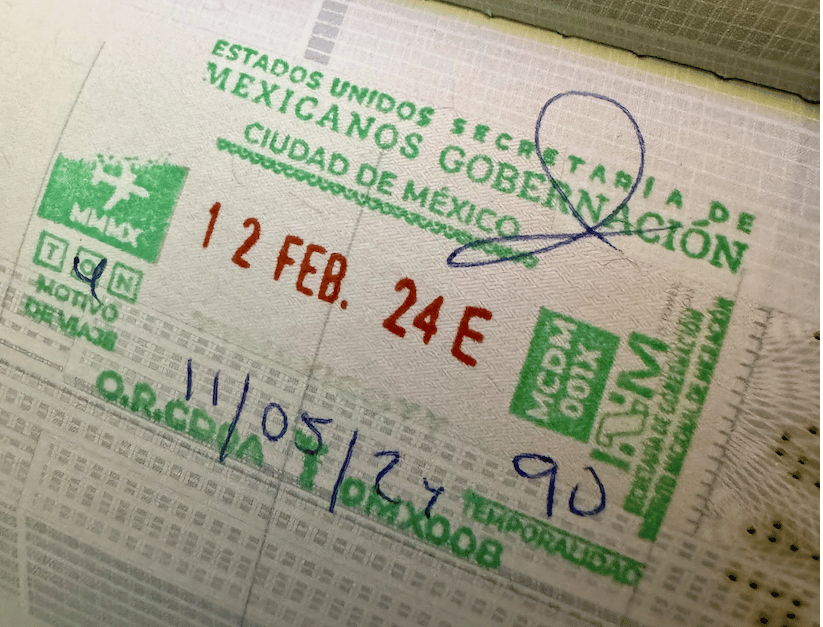- DOUBLE CLICK
- Posts
- I was able to leave the U.S. for the first time in 23-years
I was able to leave the U.S. for the first time in 23-years
This is a glimpse into the emotional cost of traveling abroad
AUTHOR'S NOTE: If you are receiving this email, it's because you subscribed to my previous newsletter (INBOX ONE), which I decided to abandon and rebrand due to the ongoing mishandling of accounts and users publishing Nazi-related content on Substack. The DOUBLE CLICK newsletter will continue to deliver news, opinions, and insights into immigration and tech — just as INBOX ONE ought to do. Please feel free to reach out to me should you have any questions or concerns.
Last week, I traveled outside the United States for the first time after spending decades living in the United States for twenty-three years.
For the first time since arriving in Miami, FL, during the Summer of 2000, I boarded a flight to visit a new country — a feat previously that was out of reach due to my lack of immigration status.
You know the story — right? My family and I arrived in Florida and lost our immigration status due to a lawyer's negligence in our case circa 2006, a singular moment in time that set me into the political and immigrant rights advocacy that I am still navigating today.
One of the many consequences of lacking legal immigration status in the United States was the inability to travel outside the country on academic trips or fancy vacations my friends planned throughout the year.
Nevermind the inability to get a driver's license, apply for a job, or go to college — no immigration status meant that I either stayed in the U.S. long enough to adjust my immigration status or lived to see the day I would be deported to Venezuela, the country my parent fled from all those years ago.
Immigration papers genuinely have a way of hampering every aspect of your life — even when you might not be under imminent threat of deportation.
In 2021, my marriage to my wife, Susie, allowed me to adjust my immigration status and granted me an opportunity to become a "Green Card holder" or U.S. Permanent Resident. Yet, accessing this monumental benefit, a plastic card that conferred the protections and stability I longed for, did nothing for me regarding international travel.
That is because U.S. Permanent Residents are not given a U.S. Passport and must travel with the passport of their home country any time they wish to exit and re-enter the United States.
As a Venezuelan national, I could not travel outside the United States because my passport had expired, and the only way to obtain a new one was to travel to Canada or Mexico, two countries requiring a valid passport upon entry.
Why are Venezuelan nationals forced to go outside the United States to replace or renew a consular document (like a passport or national ID) you may ask. The answer is complicated — much longer than I intend to detail in this post — but primarily due to the hostile (and lack of) diplomatic relations between both countries.

This stamp on my travel permit allowed me to enter Mexico.
On February 12, 2024, I crossed another milestone in my immigration journey since leaving my home country of Venezuela.
After planning a trip outside the country for the better part of three years and obtaining multiple documents that would grant me the ability to depart and return to the U.S., I finally stepped foot in Ciudad de Mexico, accompanied by Susie and friends to spend time in a new place and go to the Venezuelan Embassy to submit all the documents necessary to obtain a new passport.
However, every single doubt and speck of anger I felt throughout my years as an undocumented immigrant re-emerged to remind me of the cruelty of systems and forces (most out of our reach as individuals) that continue to keep us from our sense of normalcy and freedom.
I may have gained mobility across most borders now that I am obtaining a Venezuelan passport in a few months (eventually, a U.S. passport once I can naturalize). Still, the pain and distress of living under constant fear of the anxiety of deportation remains to a very valid and vivid degree.
More healing has to happen for me while legislative avenues that allow millions of people to obtain a path toward adjusting their immigration status continue to evade us as a country.